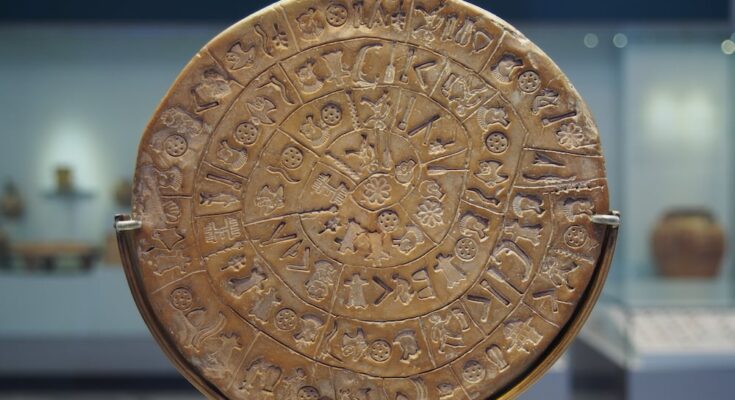The Minoans are most famously known for their connections to Bronze Age Greece and the legend of Atlantis. However, they also had a very surprising connection with King David, the famous king of ancient Israel. In fact, the evidence shows that there may have been groups of Minoans who actually served this ancient king. How do we know this?
King David’s foreign warriors
King David is a very significant figure in the Bible, and historians widely agree that he was a historical figure. He ruled over the land of Israel in approximately 1000 BC. The vast majority of his warriors, needless to stay, were fellow Israelites. However, the Biblical record also reveals that he had warriors from other nations.
Within David’s retinue of soldiers was an Israelite man named Benaiah. The Biblical record describes him as being in charge of the Cherethites. Elsewhere, it describes Benaiah as being in charge of King David’s personal bodyguard.
This suggests that the Cherethites served as King David’s bodyguard. In other words, the Cherethites apparently had a role somewhat similar to the Praetorian Guard in ancient Rome. Notably, these Cherethites were apparently not Israelites.
The Sea Peoples and the Minoans
There is good reason for linking the Cherethites with the Minoans. Let us consider some important facts. In the twelfth century BC, the Sea Peoples invaded the region, including as far south as Egypt. One notable group of Sea Peoples were the Peleset, the Philistines of Biblical history. There is good reason for identifying them with Cretans.
By this period, Crete had already come under the power of the Greeks. The Mycenaeans had conquered the island in the fifteenth century BC, bringing an end to the Minoan trading empire.
Despite this, the Minoan civilisation continued on for quite a few centuries. Although they no longer had control over the island, a distinct Minoan culture is still discernible in the archaeological record until at least the early first millennium BC. Therefore, arrivals from Crete in the twelfth century BC would very likely have included Minoans, not just Greeks.
Strongly supporting this is the fact that Egyptian reliefs picture the Philistines as wearing a type of helmet which is essentially identical to a helmet shown on the Minoan Phaistos Disk. Therefore, it is very likely that Minoans composed a large part of the Philistines.
The Minoans of David’s time
After their invasions in the twelfth century BC, Pharaoh Ramesses III defeated them and settled them in southern Canaan, the land of the Philistines. However, despite popular belief, there is evidence that the Philistines (that is, Minoans from Crete) had already been in the region for several centuries.
How do these facts relate to the Cherethites who served King David in ancient Israel? Many scholars have suggested that ‘Cherethite’ is a form of the Hebrew word denoting a Cretan. In fact, the Greek Septuagint replaces this word directly with the Greek word for ‘Cretan’.
However, why does the Bible not use this term all the time when referring to the Philistines? Some commentators have made the reasonable suggestion that the Cherethites was the name given to a second (and therefore, less significant) wave of arrivals.
In view of the evidence that there were already Philistines living in southern Canaan long before the twelfth century BC, the arrival of the Sea Peoples was evidently this second arrival. Therefore, the Cherethites who served King David were very likely descended from this more recent group.
As we have already seen, the evidence shows that the Philistines who arrived in the twelfth century BC were largely (perhaps even predominantly) composed of Minoans. Thus, this would mean that David’s Cherethites were essentially Minoans, although likely mixed with Greeks as well.
In other words, this means that Minoans apparently served as part of King David’s personal bodyguard in ancient Israel.



